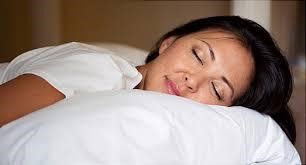As a passionate fitness expert, I usually check with my clients about their sleep patterns. Most of us understand -” Sleep your way to fitness.” But how much do we implement it in our schedule? Sleep medications, sleep apps, night time stories, mellow music, alcohol…people suffering from insomnia try it all. So, let’s take a closer look at the sleep cycle.


The Circadian Rhythm
The sleep pattern cycle through the twenty-four-hour day, better known as the Circadian Rhythm, is the basis to a healthy routine. Better sleep results in better energy levels throughout the day, which leads to better productivity. The circadian rhythm has been linked to our mental and physical well being.
Mental Health
Extensive research shows that the following three parameters are directly linked to a person’s mental health:
- Sleep onset time
- Quantity of sleep
- Quality of sleep
Studies by Russell G. Foster (a leading British professor of circadian neuroscience), show that Sleep and Circadian Rhythm Disruption or SCRD is very common in people suffering from mental illness, and although well known, this association is poorly understood or treated.
Human Physiology
Also known as the sleep/wake cycle, the term Circadian refers to the physiology associated with the various biological processes occurring and recurring naturally during a twenty-four-hour cycle, even in the absence of light fluctuations.
These biological processes include various functions such as sleep, wakefulness, and digestive activity. Good digestive activity implies better absorption of micronutrients, which in turn paves the way for better physiological and psychological health.
Circadian Rhythm = Good digestive activity = Better absorption of Micro Nutrients = Better Immune System = Better Physiological and Psychological Health.
Sleep Physiology
Sleep is controlled by the hypothalamus in the brain. Both the presence of light and absence of light send an optic signal from the eye to the brain to enhance alertness and rest signals respectively. The absence of light triggers off the release of the hormone Melatonin, which induces a feeling of tiredness and signals the body to rest and recover. It also slows down the heart rate and metabolic activities to allow the vital organs and energy levels to recharge and replenish.
Symptoms Of Sleep Deprivation
- Shift workers (truck drivers, call center executives, flight attendants, pilots, emergency unit doctors, astronauts, etc.) and other individuals with irregular work hours suffer greatly from the disruption of sleep patterns or Circadian Rhythm. This is also known as Circadian Dysrhythmia or in standard terms, Jet Lag. This pattern break is usually accompanied by severe gastrointestinal symptoms in many, such as:
- acidity reflux
- headache
- low energy levels
- mood swings
- poor food choices
- inability to breathe properly

Remedies For Better Sleep Health
Sleeping and Waking Early: According to the ancient wisdom of the Brahma Muharat, the early hours of the morning when the sun rays strike the earth are usually the most productive and peaceful. These early hours are apt for concentration, meditation and realisation of different fields of studies. Sleeping and waking up early are the first conscious steps to taking charge of your health.
Rules To Follow Post 8 PM
- Early light dinner: Eat a light dinner that is low on oil and has moderate carbohydrates. Include a small portion of sweet fruit, if you crave something sweet.
- A good quiet read: A good positive, spirit uplifting, mood-enhancing book, should be a must-do close to bedtime. Ten to thirty minutes of reading can help relieve stress and promote better sleep.
- Screen time: Avoid screen time at night unless it is absolutely necessary. In case you do watch something, let it be short and pleasant.
- Lights down: Try dimming the lights at home after 7.30 pm or 8 pm. Dim lighting signals to the mind that it is time to rest.
- Good face and hair routine: A good face wash, moisturiser, combing of hair, light oiling of the scalp – all help in not only improving blood circulation but also in relaxing the mind. Re-hydrated, one feels better and immediately relaxed.
Improving one’s health holistically includes working with the physical, mental and spiritual aspects of your life in a symphony. A night of good sleep, in turn, leads to an efficient Circadian Rhythm. It is important to develop good sleeping habits for attaining good health, irrespective of negative social influences, work pressures, and other deviations.
Share
Picture Credit :


Very informative! Enjoyed it thoroughly
Thank you so much .
Insightful and helpful
Thank you Amit.
Helpful tips